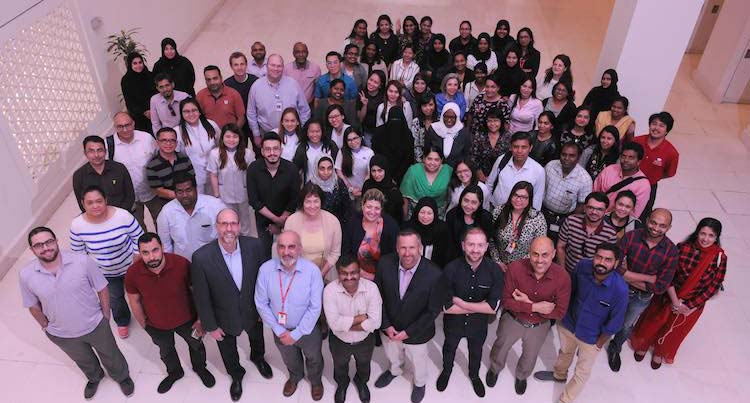A visiting expert outlined key strategies for containing diseases such as ebola and MERS at two seminar sessions hosted by Weill Cornell Medicine-Qatar (WCM-Q) recently.
Sean G Kaufman, a US-based expert and trainer in behavioural sciences, infectious disease control, emergency preparedness and risk communication, led healthcare professionals from institutions all over Qatar through a series of presentations, practical demonstrations and Question and Answer sessions to provide crucial information about disease containment.
The programme explained the history of infection control, the human risk factors involved in the spread of disease, strategies to mitigate contamination risk, and how to set up an effective isolation unit. The same seminar was offered on two separate days, allowing more than 160 delegates to attend.
The event, Clinical Containment Strategies for Emerging Infectious Disease, also covered important Standard Operating Procedures (SOP) for work in an isolation unit. These covered practical measures such as how to safely clean up spills, clinical medical surveillance, how to respond to needle-stick injuries and how to safely remove gloves to minimise the risk of inadvertent contamination.
Kaufman emphasised that the key to successfully containing contamination depends on several factors – rigorous training, comprehensive knowledge of the disease, demonstration of competency in relevant standard operating procedures, and clearly established protocols.
In order to establish appropriate protocols and training, we have to be able to classify where a patient goes, what they have and what transmission risk they present. For example, if a patient has CCHF (Crimean-Congo haemorrhagic fever) then they go to this particular area and these specific protocols are activated. If they have MERS (Middle East Respiratory Syndrome) or SARS (Severe Acute Respiratory Syndrome) then these particular protocols are activated in this particular location.
Once you know the disease, you can then identify specific protocols and training for the nurses and doctors who will be treating these patients.’
The lecture was accredited locally by the Qatar Council for Healthcare Practitioners-Accreditation Department (QCHP-AD) and by the Accreditation Council for Continuing Medical Education (ACCME). For more information about the seminars hosted by WCM-Q, visit their homepage at qatar-weill.cornell.edu.








